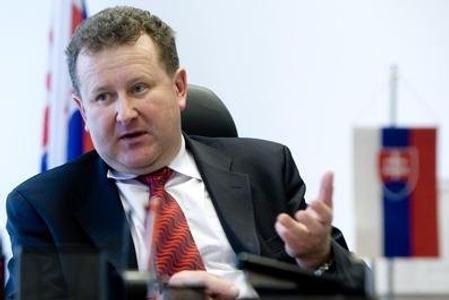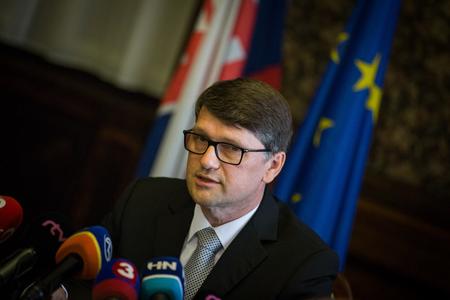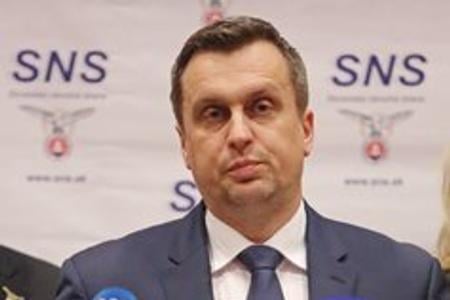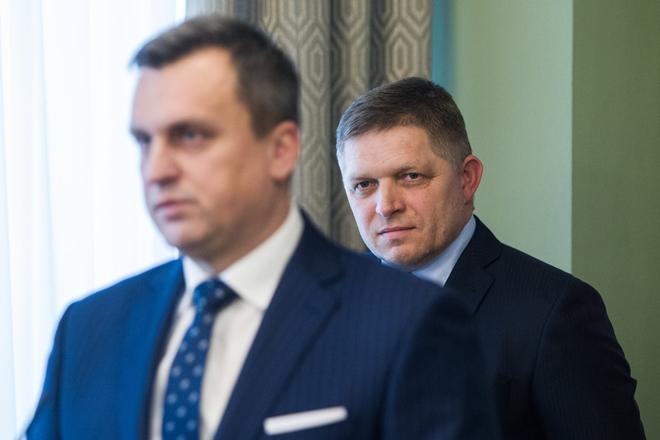"Tension that needs to be removed” is the effect that the hike in energy prices has had on the ruling coalition in early February.
While leaders of Smer and Most-Híd insisted there was no coalition crisis to talk about, the Slovak National Party (SNS) Chairman Andrej Danko insisted the situation around the surveillance authority was problematic and he has also had problems with communication with PM and Smer leader Robert Fico.
The coalition has since met on February 8 and the partners seem to have resolved the tensions, practically yielding to the demands of the SNS to come up with a new model of energy distribution and pricing. The partners have agreed on “more sophisticated forms of cooperation”, as Fico put it. The partners will also discuss issues that fall under the ministries’ competencies, in order to be better informed. They were scheduled to meet again as early as February 14 to discuss the energy sector.
“We have learned, we need to meet more often,” Danko told journalists following the meeting and added that he and his partners are too “humans made of bones” and “I as a human am learning some things too”.
Utility tariffs cause backlash
The controversy started with the Regulatory Office for Network Industries (ÚRSO) revamping the composition of prices for electricity, natural gas and water in the final months of 2016. The changes came into effect at the beginning of 2017. In general, they increased fixed fees within the end prices for utilities and introduced new tariff rates for consumers. ÚRSO defended the change as an effort to encourage consumers to move into tariff categories that better reflect their final consumption of electricity and the associated real costs.
However, the change in the composition of the electricity for end users, which apart from the fees for electricity as a commodity also consists of a plethora of other fees, including a so-called circuit-breaker fee, have led to steep increases in payments for some consumers.
In central Slovakia, for example, the distributor increased the monthly circuit-breaker fee in the lowest tariff rate from €2.00 to €4.59 for a one-phase circuit breaker, and to €11.37 for a three-phase circuit breaker.
Holjenčík out
After consumers complained about steep increases, rather than the reductions in energy prices they had expected, PM Fico intervened to demand lower prices. By apparently complying, the regulator has put its own independence in doubt – not for the first time.

After a conflict, stemming from the allegedly arbitrary increase of electricity fees for end consumers by ÚRSO became politicised, its head Jozef Holjenčík announced his resignation on February 2 morning.
He was invited to parliament to explain his decision on increasing prices for access to electricity and gas networks, effectively leading to a hike in end prices for final consumers as of January 1.
But instead of reporting to parliament, the ÚRSO head met with the prime minister to hand in his resignation. By that time, the coalition SNS and several opposition parties had also demanded Holjenčík’s resignation.
Crisis?
Most-Híd was satisfied with the fact that Holjenčík quit as ÚRSO head. Its leader Béla Bugár stated that there would have been a crisis if he had stayed.
The announced resignation, however, did not satisfy SNS head Danko who complained on February 2 that he had not spoken with the prime minister for four days - due to the ÚRSO controversy. He then uttered the word crisis.
“Now there is just one point, and that is point zero, but in politics one must shake things off,” Danko told journalists later, on February 6, as quoted by the Sme daily, when asked about his relationship with Fico.
Even Bugár admitted it was going to be tough to get the two talk together.
“I would talk about tension, and that tension needs to be removed,” Bugár said on RTVS on February 5 as he assumed the role of mediator between his two coalition partners.
All three partners were, however, satisfied with the outcome of the February 8 meeting and agreed to meet more - although they did not come up with concrete solutions, such as a replacement for Holjenčík in the ÚRSO top post.
SNS gains
“Danko’s statements are not totally clearly legible,” political analyst Pavol Baboš from the school of political science of Comenius University in Bratislava told The Slovak Spectator. While it is standard for coalition governments to try and prevent tensions, Danko seems to be doing the opposite.
“Probably he is convinced that it helps him and his party,” Baboš said.
Observers agree SNS came out of the talks stronger - they are expected to draft a new model of pricing for the energy sector. Danko originally mentioned either the creation of an energy holding, or a special section at the Economy Ministry that would handle the shareholder rights and supervise the husbandry in energy companies.
“I have the information from my coalition partners that it will be no problem,” Danko said, as quoted by Sme, adding that also the state should attend the negotiations on prices.
The party also gave him a mandate to discuss the potential personnel changes at the February 8 coalition council meeting. The three SNS nominees decided to leave the supervisory boards in energy firms after a month in their functions, even though they took the posts after the prices had already been decided, Danko told the February 6 press conference.
He also refused the claim that the nominees had received high bonuses.
“I respect financial groups, if they don’t turn the state into dairy cows,” Danko said, as quoted by the SITA newswire. “SNS will push on EPH[Energetický a Průmyslový Holding] to leave.”
Crisis as strategy?
It is not the first time SNS and its leader have gained from a coalition dispute. In the past, Danko stood up against Culture Minister Marek Maďarič when he proposed higher fees for radio and television - and succeeded at least in stopping the proposal of the minister, who for a while even threatened to quit if his plan did not come through.

SNS also managed to get the post of the SIS head and the police vice president under its control.
Danko has previously displayed ambitions to be the country’s next prime minister.
“So I do not exclude that his current behaviour is part of a strategy with the final aim of the prime ministerial post,” Baboš commented, but noted that his strategy is not 100 percent comprehensible for analysts.

Fico: No reason for hikes
Out of three regional distributors, the change in electricity prices caused the biggest uproar in central Slovakia. This area is covered by electricity distributor SSE-Distribúcia, which is controlled by the Czech energy group EPH.
Though the changes were first announced only for central Slovakia, the regulator prepared a new decree on price regulation which returns the fees to the 2016 levels across the whole territory and which is to be passed in a fast-track procedure. The decision followed the February 6 meeting with Fico, Economy Minister Peter Žiga, and representatives of power utilities.
“There is no reason for a rise in energy prices,” said Fico, as quoted by the TASR newswire.
As a consequence of the latest changes, the final electricity price should return to last year’s levels or even lower as the price of electricity as a commodity decreased on the market last year.
People should now wait for new upfront invoices to be sent by electricity utilities. Also those households which have already paid the higher upfront invoices will not lose money as the utilities will reduce their later invoices.
In the case of gas, ÚRSO also performed a nationwide U-turn when it reversed its price decision for gas distributor SPP-Distribúcia, which is also controlled by EPH. The changes will also concern water, whose prices will return to 2016 levels as well, TASR reported.
Opposition seeks no-confidence motion
The opposition, however, does not see the ironed relations among the coalition partners and the proposed changes in energy distribution as the desired resolution of the electricity prices controversy.
MPs of Freedom and Solidarity (SaS) and Ordinary People and Independent Personalities (OĽaNO) on February 6 announced they were planning to initiate a no-confidence vote against the prime minister (and thus the whole government) in the parliament. They cite the “confusion around the energy invoices” as the reason for such a step. They called on Fico and Danko to have all their nominees in boards and supervisory boards of all energy companies resign by February 8, and along with them also Economy Minister Žiga.
“Never in history has Slovakia seen any such chaos and such premeditated attempt at fraud to suck the last drop out of the people,” OĽaNO leader Igor Matovič told the press, as quoted by TASR.
It is quite unlikely that any opposition attempt to bring down the government could pass through the parliament. As for the coalition parties, numbers from recent polls do not suggest they would do well if elections were to take place any time soon and the current coalition trio would no longer have a majority in the parliament. SNS, for instance, dropped 3.6 percentage points to just over 10 percent in the latest Focus polling agency survey.
“I do not think that SNS would gain significantly more votes or put together the next government easily,” Baboš said. “But that does not mean Danko or people around him may not think that.”





 Andrej Danko and Robert Fico. (source: Sme)
Andrej Danko and Robert Fico. (source: Sme)